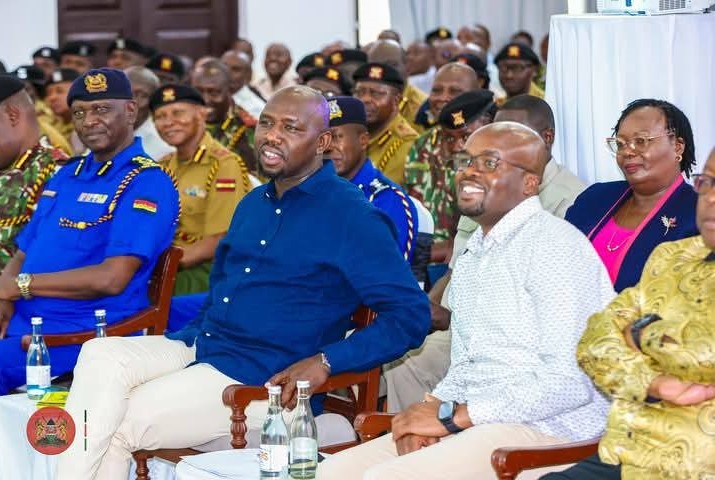At the heart of the controversy is the status of the Director of Criminal Investigations. Historically, DCI chiefs have held the rank of Deputy Inspector General (DIG), a position of significant clout within the NPS. However, the Ministry of Interior, led by Cabinet Secretary Kipchumba Murkomen, has thrown a spanner in the works, arguing that the DCI, as a mere formation under the NPS, should not be equated to a DIG. This assertion, outlined in a letter to Inspector General Douglas Kanja, challenges the status quo and raises eyebrows over the motives behind the downgrade.
The proposed Bill, however, tells a different story. It seeks to transform the DCI into a Criminal Investigations Service (CIS), headed by a DIG and empowered to recruit civilians with expertise in forensic science and related fields. This move would enhance the DCI’s autonomy, potentially positioning it as a formidable entity within the NPS, distinct from its current role as a support unit for both the Kenya Police Service (KPS) and the Administration Police Service (APS). Murkomen has cautioned that such a transformation requires a robust Criminal Investigations Policy, a condition critics argue is a deliberate stalling tactic to preserve the Inspector General’s dominance over the DCI.
The drama does not end with the DCI. The General Service Unit, Kenya’s elite paramilitary wing, is also pushing for greater autonomy. The Bill proposes that the GSU commandant report directly to the Inspector General, bypassing the DIG–KPS. This shift would grant the GSU unprecedented operational freedom, sparking fierce opposition from the APS, which warns of “duplication of duties”. The APS’s resistance hints at a deeper fear: that a more independent GSU could siphon resources and influence from other units, further fracturing the NPS’s delicate balance of power.
Perhaps the most audacious proposal in the Bill is the expansion of the Inspector General’s authority. Currently, the IG’s powers are limited to deploying officers of Superintendent rank and below, with higher ranks managed by the National Police Service Commission (NPSC). The Bill seeks to grant the IG control over the deployment of all officers, a move that could marginalise the NPSC and weaken oversight mechanisms. This centralisation of power has raised alarm among reform advocates, who fear it could erode accountability in an institution already grappling with public trust issues.
Adding fuel to the fire is the proposed establishment of a National Police Service Forensic Laboratory under the CIS, led by an Assistant Inspector-General. This specialised unit would provide forensic services, ranging from ballistics to biometric analysis, not only to the NPS but also to agencies such as the National Intelligence Service (NIS), the Independent Policing Oversight Authority (IPOA), and the Ethics and Anti-Corruption Commission (EACC). While this promises to professionalise criminal investigations, it also positions the CIS as a potential powerhouse, capable of influencing the broader criminal justice system. The laboratory’s role in providing expert evidence in legal proceedings could make it a linchpin in high-profile cases, further amplifying the CIS’s clout.
The Bill’s push to recruit civilians into the CIS, particularly those with expertise in forensic science, is another flashpoint. This move signals a shift towards professionalisation, reducing reliance on traditional police officers for specialised investigations. However, it is likely to ruffle feathers among career officers, who may view civilian recruits as outsiders encroaching on their domain. This tension reflects a broader struggle between modernising the NPS and preserving its entrenched hierarchies.
The Ministry of Interior’s insistence on a Criminal Investigations Policy before enacting the CIS underscores a critical fault line: the absence of a clear strategic framework. Murkomen’s stance suggests resistance from within the NPS to rapid structural changes, particularly those that could empower the DCI or GSU at the expense of other units. The involvement of legal officers from the NPS, NPSC, IPOA, and other institutions in drafting the amendments indicates a complex negotiation process, but it also highlights the risk of bureaucratic gridlock as competing interests vie for dominance.
The proposed amendments are more than a bureaucratic reshuffle; they are a battle for the soul of Kenya’s criminal justice system. Will the DCI evolve into a semi-autonomous CIS, bolstered by civilian expertise and a cutting-edge forensic laboratory? Or will it remain a subordinate unit under the Inspector General’s thumb? Will the GSU’s bid for autonomy reshape the NPS’s power dynamics, or will inter-unit rivalries scuttle the reforms? And, most critically, will the centralisation of power in the Inspector General’s hands strengthen the NPS or undermine its accountability?
As Kenya grapples with these questions, the public watches closely. The outcome of this legislative saga will determine not only the structure of the NPS but also its ability to deliver justice in an era of rising crime and public scrutiny. For now, the chess pieces are moving, and the board is far from settled.
[/full]




